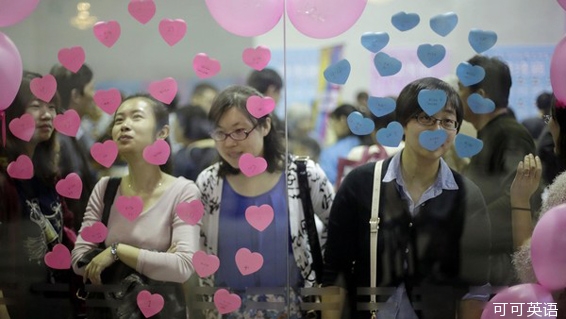
For singles in China under pressure to get married, there are plenty of professional match makers, and busybody parents. But for young people seeking to avoid such interference, there is now a bevy of smartphone apps offering a less formal approach.
您現(xiàn)在的位置: 首頁 > 雙語閱讀 > 雙語新聞 > 科技新聞 > 正文

For singles in China under pressure to get married, there are plenty of professional match makers, and busybody parents. But for young people seeking to avoid such interference, there is now a bevy of smartphone apps offering a less formal approach.
| 重點(diǎn)單詞 | 查看全部解釋 | |||
| interference | [.intə'fiərəns] |
想一想再看 n. 妨礙,干擾 |
聯(lián)想記憶 | |
| haven | ['heivn] |
想一想再看 n. 港口,避難所,安息所 v. 安置 ... 于港中, |
聯(lián)想記憶 | |
| avoid | [ə'vɔid] |
想一想再看 vt. 避免,逃避 |
聯(lián)想記憶 | |
| status | ['steitəs] |
想一想再看 n. 地位,身份,情形,狀況 |
聯(lián)想記憶 | |
| investor | [in'vestə] |
想一想再看 n. 投資者 |
||
| challenge | ['tʃælindʒ] |
想一想再看 n. 挑戰(zhàn) |
||
| advantage | [əd'vɑ:ntidʒ] |
想一想再看 n. 優(yōu)勢,有利條件 |
聯(lián)想記憶 | |
| popular | ['pɔpjulə] |
想一想再看 adj. 流行的,大眾的,通俗的,受歡迎的 |
聯(lián)想記憶 | |
| pressure | ['preʃə] |
想一想再看 n. 壓力,壓強(qiáng),壓迫 |
聯(lián)想記憶 | |
| approach | [ə'prəutʃ] |
想一想再看 n. 接近; 途徑,方法 |
聯(lián)想記憶 |
